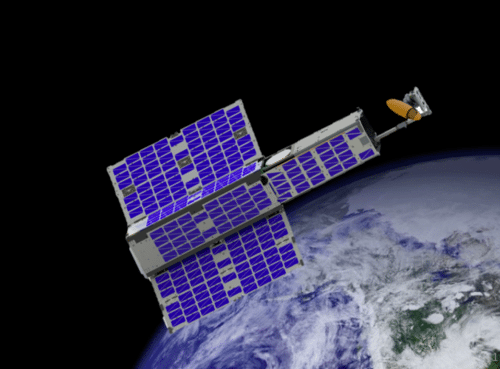Latest News

Artist rendition of Orbital Micro Systems Microwave Sensor Satellite. Photo: Orbital Micro Systems
Orbital Micro Systems (OMS) partnered with the Georgia Institute of Technology to develop Monolithic Millimeter-Wave Integrated Circuit (MMIC) devices using silicon-germanium semiconductor hybrid material for its next generation of commercial Earth Observation (EO) radiometry instruments.
Working closely with the University’s Silicon-Germanium Devices and Circuits group, led by Professor John D. Cressler, OMS anticipates the single-chip solution will reduce the weight, size, and power consumption of its satellite-based instruments while taking advantage of the inherent radiation tolerance of silicon-germanium devices. Cressler is an expert on silicon-germanium design and is the Schlumberger Chair Professor in Electronics and Ken Byers Teaching Fellow in Science and Religion in the Georgia Tech School of Electrical and Computer Engineering.
“We could not be more excited about our collaboration with Georgia Tech’s world-class team in the area of silicon-germanium devices and circuits,” said Michael Hurowitz, chief technology officer for OMS. “Designing instruments for use in key weather and climate observations requires us to continuously innovate to achieve state-of-the-art capabilities while simultaneously optimizing for size, weight, power, cost, resiliency, reliability, sensitivity, and resolution. Working with our esteemed colleagues at Georgia Tech will accelerate our earth observation constellation mission and ultimately enable better weather and climate data collection for every point on the globe.”
Get the latest Via Satellite news!
Subscribe Now